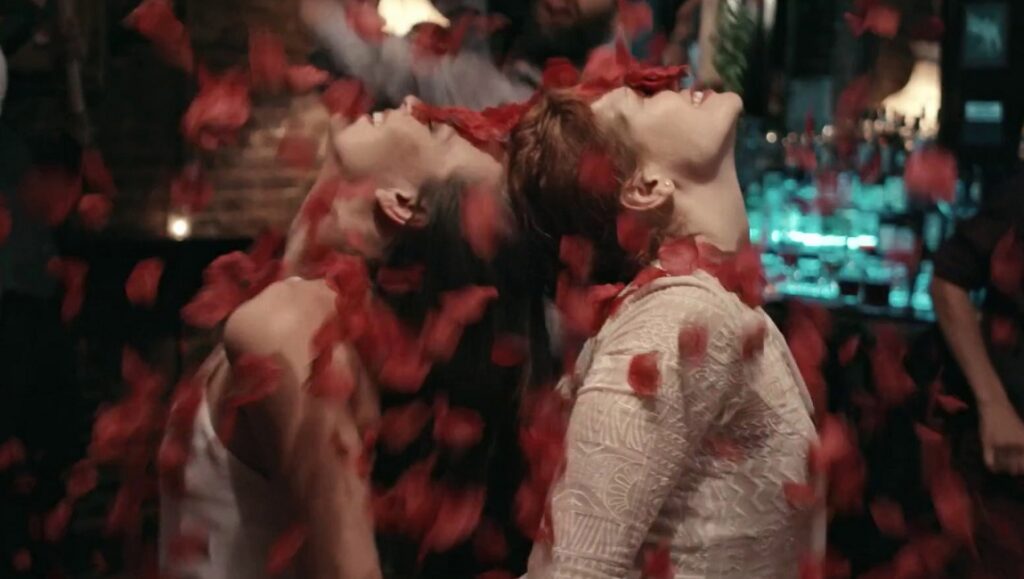Aviva has the distinct feel a Personal™ film, and one that mistakes gimmickry for depth at every turn.
Boaz Yakin has had a bizarre career, a textbook case (or cautionary tale) of a young, independent director struggling to finance personal films while finding steady work in the Hollywood machine. After years of occasionally successful toil (Remember the Titans was a sizable hit; his last film, Boarding School, barely got released), Aviva is very much a conscious attempt to reclaim that independent spirit. Unfortunately, the film is a cliched relationship drama obscured by so many bells and whistles, so much self-reflexive artistic intent, and so many grandiose pretensions, that it collapses under its own weight. It’s the kind of bad film that can only come from a deeply personal place, and as such, it seems almost churlish to pan it, like insulting a friend who has sheepishly shared their terrible poetry with you. Aviva is largely familiar material, following the tumultuous relationship of sullen, depressed Eden and the more outwardly normal Aviva from the beginnings of their romance through an ill-advised marriage and the inevitable dissolution of that marriage. The kicker is that the characters of Eden and Aviva are each played by both a man and a woman, each of whom represents different aspects of their respective character’s personalities, and who all share the screen together. Aviva is mostly portrayed by Zina Zinchenko, who occasionally cedes the screen to Or Schraiber. Eden is predominantly played by Tyler Phillips, as well as Bobbi Jene Smith. It’s not particularly difficult to keep track of, thankfully, but the longer the film goes on, the more it feels like a gimmick than an actual attempt to grapple with the inherent contradictions inside each of us.
All of these performers are dancers, not professional actors, a fact that Smith announces directly to the audience at the beginning of the film. Like a musical of sorts, Yakin has his performers break into intricately choreographed dance numbers throughout the film, and Smith tells us that all involved thought it would be easier for professional dancers to attempt to act than the other way around. That might very well be true, but the problem becomes a matter of non-professional actors trying very hard to make dialogue sound authentic and naturalistic and mostly failing. Yakin also has his cast repeatedly break the fourth wall, commenting directly on the movie we are watching, which is also broken up into separately-titled sections. It’s an absolute avalanche of ideas, presumably everything Yakin has ever wanted to cram into a screenplay before being told ‘no’ by studio heads. But these pseudo avant-garde ticks are simply that — a patina of modernist tropes and affectations applied to a scenario that doesn’t need them. It all seems like special pleading, a showy attempt at intellectual grandeur (and I haven’t even mentioned the extended flashback that has a young version of Eden narrating his youth with a terrible rap song). Even the copious amounts of male and female nudity and explicit sex scenes feel like a decade or so too late, when European directors where really pushing the envelope with on-screen, unsimulated sex acts (Yakin is no Breillat or Noe or Carax). Aviva certainly feels meaningful to the director, and one hopes that Yakin got some kind of cathartic closure by completing the picture. There’s certainly nothing of value here for the hypothetical audience to whom he keeps talking.
Published as part of June 2020’s Before We Vanish.


Comments are closed.